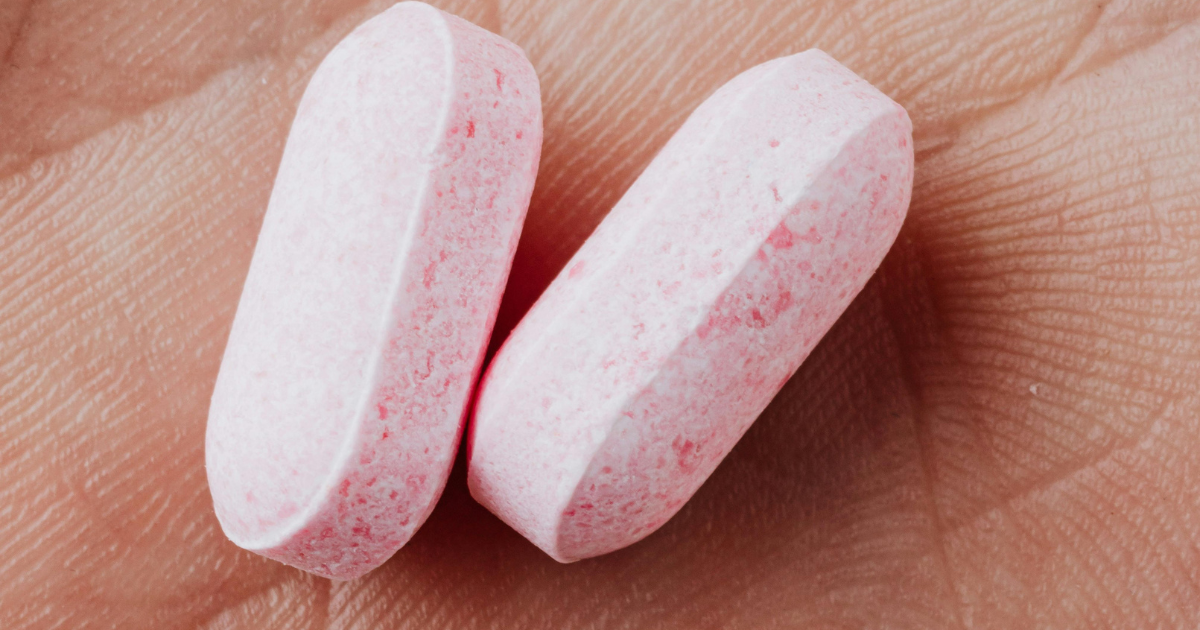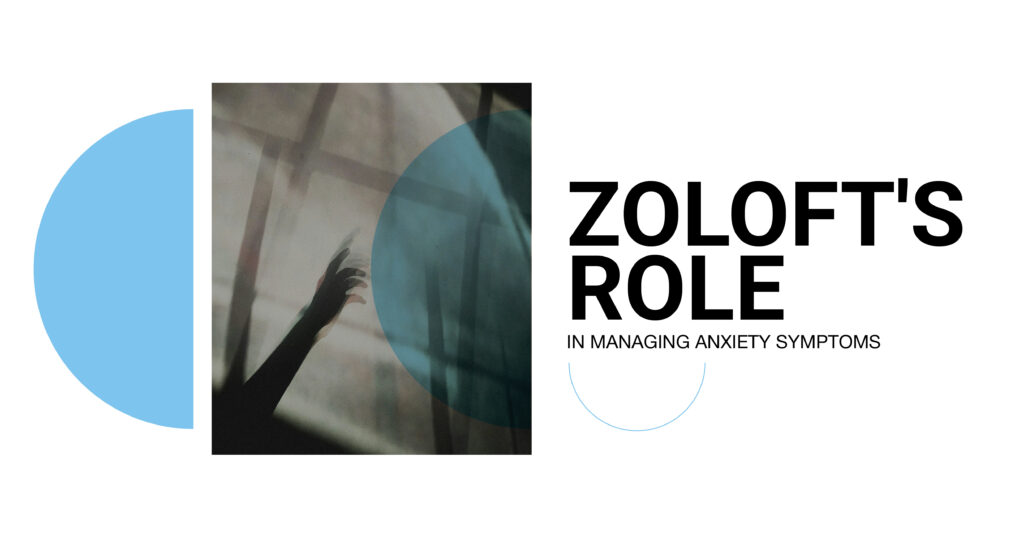Anxiety can take control of your thoughts and heart rate while disrupting your daily routines. The first name that often appears when searching for relief on prescription pads is Zoloft anxiety medication for numerous patients. Sertraline for anxiety functions as one of the most used antidepressant medications on the market, although its main applications extend beyond treating depression.
Zoloft anxiety treatment covers various conditions, including generalized anxiety, panic attacks, and social phobia. How does it function? What Zoloft anxiety benefits does it bring compared to alternatives? People new to this medication should understand what to expect during the first few weeks of treatment. The following guide explains how Zoloft interacts with body systems to treat Zoloft anxiety symptoms so users can make decisions based on facts instead of misunderstandings.
What Is Zoloft and How Does It Work for Anxiety?
Zoloft functions as a prescription antidepressant that belongs to the SSRI (selective serotonin reuptake inhibitor) medication category. The medication functions by blocking serotonin reabsorption into neurons which leads to stable mood and Zoloft anxiety relief.
Zoloft requires time to modify brain chemistry because it does not deliver immediate relief to patients when they start taking the medication. Patients who receive proper monitoring and maintain consistent use of the medication will experience significant mood improvement along with reduced anxiety symptoms. The correct Zoloft anxiety dosage serves as a crucial factor for achieving this progress.
Benefits of Using Zoloft for Anxiety Relief
The extensive research, along with practical outcomes, confirms Zoloft’s effectiveness in treating anxiety and its widespread utilization as an anxiety treatment. The medication helps patients reduce their anxiety occurrences while providing better management of racing thoughts and enhanced sleep quality. Zoloft stands out among antidepressants because it offers good tolerance and works well for various patient requirements.
The medication offers a significant benefit because it remains effective in the long term. Doctors under medical supervision can adjust dosage levels to enhance or sustain treatment outcomes. Zoloft functions as an important component of anxiety management for numerous patients who combine it with therapy and other coping strategies.

Common Benefits of Zoloft for Anxiety:
- Reduced panic and worry
- Fewer intrusive or racing thoughts
- Improved sleep and concentration
- Less physical tension or restlessness
- Enhanced emotional regulation
Zoloft Dosage Guidelines and Treatment Duration
Doctors determine Zoloft dosages through examination of patient age, medical diagnosis, body weight, and their antidepressant medication history. The starting dose for anxiety disorder patients under medical care begins at 25 to 50 mg per day and may require adjustments for better treatment results. Doctors use caution when increasing Zoloft doses because the maximum prescribed amount remains at 200 mg daily.
The onset of noticeable improvements from Zoloft treatment begins at the fourth to sixth week of starting the medication. Patients need to maintain their Zoloft medication regimen without interruptions since the medication takes time to develop its full benefits in the bloodstream.
| Dosage Range | Description |
| 25–50 mg | Typical starting dose |
| 100–150 mg | Moderate therapeutic range |
| 200 mg | Maximum recommended daily dose |
Starting low and increasing gradually allows Zoloft to deliver effective relief while reducing the chance of unwanted side effects.
Potential Side Effects of Zoloft for Anxiety
Serotonin syndrome, severe mood swings, and suicidal thoughts (especially in adolescents) are rare but serious side effects that may occur. These situations require immediate medical attention. The majority of patients can tolerate Zoloft when the medication is started at a low dose and the dose is gradually increased.
| Common Side Effects | Less Common but Serious Side Effects |
| Nausea, dry mouth | Serotonin syndrome |
| Headaches, fatigue | Mood destabilization |
| Insomnia or drowsiness | Suicidal thoughts (especially in teens) |
Most side effects are manageable and short-lived, especially with proper monitoring and dosage control.
How Zoloft Compares to Other Anxiety Medications
Doctors evaluate Zoloft in relation to other SSRIs, including Prozac (fluoxetine), Lexapro (escitalopram), Paxil (paroxetine), and benzodiazepines. The fast-acting properties of benzodiazepines lead to dependency issues, yet Zoloft delivers enduring anxiety treatment with no dependency risks.
Zoloft stands as one of the best SSRIs regarding both strength and patient tolerance. Zoloft does not provide immediate relief to all patients, yet delivers steady outcomes with minimal withdrawal symptoms during proper discontinuation.
| Medication | Onset Time | Dependency Risk | Common Use |
| Zoloft (Sertraline) | 4–6 weeks | Low | Long-term anxiety |
| Xanax (Alprazolam) | 30–60 minutes | High | Acute panic attacks |
| Lexapro | 4–6 weeks | Low | Depression and anxiety |
What to Expect When Starting Zoloft Treatment?
Zoloft treatment does not solve problems instantly. The first two weeks of taking Zoloft bring gentle side effects, including fatigue and nausea, because your body needs time to adjust. Patients usually need time to detect emotional changes while they wonder if the medication is effective. That’s normal. Patients need to maintain stable dosing and observe their body responses during this initial period.
The evaluation process includes a check-in session with mental health professionals to determine the initial response and make necessary adjustments after several weeks. This is not a one-size-fits-all treatment. Patients need time to determine the best dosage and brain adaptation period for this treatment. The adjustment phase of Zoloft treatment leads to significant improvements that affect both anxiety symptoms, daily activities, and emotional strength in most users.
| Timeline (Weeks) | Common Experiences |
| Week 1–2 | Nausea, fatigue, slight anxiety fluctuations |
| Week 3–4 | Gradual stabilization, subtle mood improvement |
| Week 5–6 | More noticeable symptom relief, better sleep |
Making Informed Medication Choices for Your Mental Health
The selection of appropriate anxiety medication goes beyond symptom control. The treatment should be designed to match each individual patient’s personal requirements together with their medical background and personal way of living. The ideal patient for Zoloft treatment consists of people who experience panic attacks and depression yet this medication may not suit those who experience significant gastrointestinal side effects. Medication needs personalized care from a psychiatrist or prescriber because each patient requires distinct treatment instead of receiving general medication.
Your decision-making process should evaluate what happens after the treatment ends. Benzodiazepines give immediate results but create dependence and lead to tolerance issues. Among these options, the SNRIs and atypical antidepressants have more potential side effects and consequences, but some patients may find them suitable. The combination of effectiveness and tolerability with low dependency risk makes Zoloft the first choice for most patients. Your treatment choice must always include your goals of care, together with your support network and your willingness to combine medication with therapy.

When Choosing an Anxiety Medication, Consider:
- History of prior medication use and results
- Depression and insomnia, along with other conditions, exist together with your anxiety
- Side effect profile and daily tolerability
- Long-term use potential and tapering ease
- Whether therapy or lifestyle change is also part of the plan
Good information combined with honest discussions between you and your provider leads to smart decision-making. Every person’s experience with medication differs because the treatment journey requires an individual approach.
Get Medication Management Support at Clear Mind Treatment
You do not need to solve the challenge of finding the right dose and symptom improvement tracking by yourself. Clear Mind Treatment provides medication management services that provide continuous monitoring throughout your entire treatment process. The team at Clear Mind Treatment explains how your medication works while determining when you need changes or when you should switch to a different treatment. The proactive method stops minor issues from developing into major setbacks.
Managing anxiety through medication is most effective when paired with consistent support. Visit Clear Mind Treatment for integrated care that respects the nuance of real-world mental health.
FAQs
How effective is Zoloft for treating anxiety symptoms?
Zoloft demonstrates successful treatment results for patients with generalized anxiety disorder, panic disorder, and social anxiety. The medication functions by raising serotonin levels which helps control mood and minimize anxious thinking. Zoloft produces significant improvements in patient conditions after patients maintain continuous treatment for 4–6 weeks.
What are the benefits of choosing Zoloft as an anxiety medication?
Zoloft stands out as a preferred SSRI choice because it provides excellent efficacy together with good tolerability. The medication presents a gentle side effect profile and minimal potential for dependency which makes it suitable for extended use.
What is the recommended Zoloft dosage for anxiety relief?
The first dose of Zoloft should be between 25 to 50 mg daily according to patient response to the medication. Your healthcare provider will increase the dosage from 25 to 200 mg if your body requires it.
Can Zoloft cause any side effects related to anxiety symptoms?
The first weeks of Zoloft treatment often bring short-term anxiety spikes, restlessness, and sleep problems to patients. The negative effects tend to disappear as your body gets accustomed to the medication.
How does Zoloft compare to other anxiety medications in terms of effectiveness?
Zoloft requires more time to start working, but delivers enduring results without creating dependency issues when compared to benzodiazepines. Zoloft serves as a better alternative to traditional antidepressants because it produces fewer adverse effects and leads to superior long-term results.








